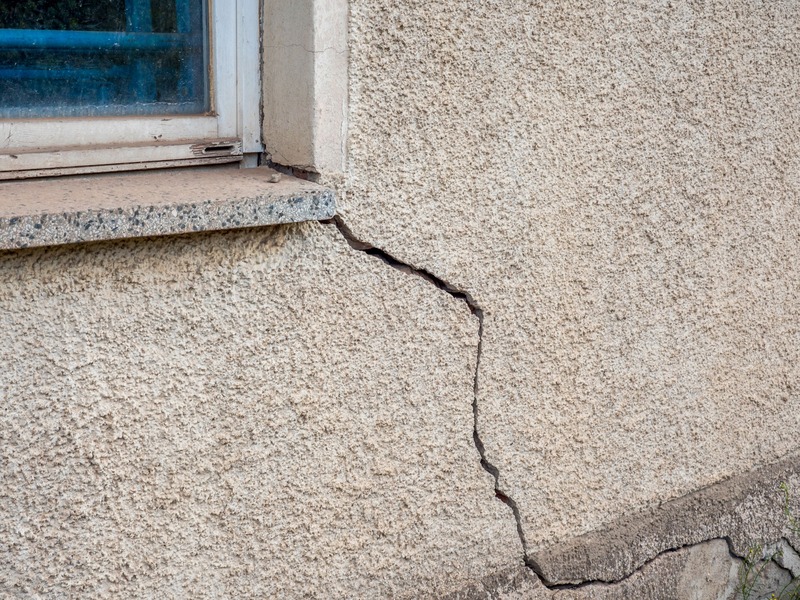The foundation of your Charleston home can experience structural issues over time, such as cracks, water damage, bowing walls, settlement, and drainage problems. These issues, if they are not addressed, can escalate into severe structural damage and may even lead to foundation collapse. The key to effective and efficient foundation repair is to catch these issues early on before they transform into bigger problems. To do that, you need to keep an eye out for signs of foundation issues. In this blog, we will go over some of the most common signs of foundation issues in Charleston, SC, and discuss the appropriate steps to take.
Why Foundation Inspections Matter?
A foundation inspection is a comprehensive service that involves a professional visiting your home to assess the condition of your foundation. Professionals will identify any signs of damage, determine the underlying causes of the problem, and develop a suitable repair plan for your foundation. Each foundation is unique, and the initial inspection is a crucial part of the process that enables experts to create a customized repair plan tailored to your home. This inspection is also a way for professionals to identify the time and cost associated with the repairs, helping you make an informed decision about your home.
6 Signs of Foundation Issues in Charleston Homes
Let’s look at eight common signs of foundation issues in Charleston homes.
Cracked Walls
Cracks in walls are a common sign of foundation problems in your home. These cracks can range from hairline cracks to gaps or stair-step cracks. The pattern of the cracks, such as horizontal, vertical, or stair-step, can help professionals determine the underlying cause of the damage.
Sticking Windows and Doors
When a foundation shifts or settles, it can cause door and window frames to become misaligned. This misalignment leads to difficulty opening or closing the windows and doors, causing them to stick. These issues often worsen over time as the foundation continues to settle.
Sloping and Uneven Floors
A noticeable slope or unevenness in the floors is a strong indication of foundation damage, suggesting that the foundation is no longer providing even, adequate support for your floors. If left unaddressed, this sloping or unevenness can gradually lead to visible dips, sloping, or bouncy sections in the floor.
Bowing Walls
Bowing walls are a common issue in basements. They occur when external pressure from soil with a high moisture content (also known as hydrostatic pressure) pushes against the foundation walls and causes the walls to lean inward, creating a noticeable bow. Without proper reinforcement, bowing walls can lead to structural instability and may eventually collapse.
Gaps Between Floor and Walls
Gaps appearing between the floor and the walls are a common symptom of foundation settlement. As the foundation sinks, sections of the entire structure of the house can shift, causing floors to pull away from the wall framing.
Settlement and Sinking
Settlement and sinking occur when the foundation of your home shifts its position. Moisture content in the soil causes it to expand; when the soil becomes dry and shrinks, it creates a void between the ground and the foundation, causing the foundation to settle and sink. This is often caused by poor compaction during construction.
What to Do Next?
Once you’ve identified the signs of foundation issues, the next step is to understand their underlying causes. This involves thoroughly investigating whether the problems stem from poor drainage, soil expansion and contraction, poorly compacted soil, a leaning chimney, or other factors.
At this stage, it’s essential to schedule a professional inspection to accurately assess the damage and implement suitable repairs. After the repairs, homeowners should undertake preventive measures, such as improving drainage around the foundation and ensuring proper landscaping, to mitigate future damage and safeguard the structural integrity of their home.
When to Seek Professional Help?
The correct time to contact a professional foundation repair company is typically when you observe a sign of a foundation/structural issue for the first time. Many homeowners wait to call professionals until it’s too late and end up paying for more extensive repairs than if they had addressed it sooner.
On the other hand, early detection can prevent more extensive and costly damage down the line and help you save time on repairs. It’s especially crucial to call in experts if you notice multiple signs at once or if problems, like mold or moisture, appear to be spreading. Serious signs that call for immediate professional inspection include cracks in the foundation walls or floors (especially horizontal or stair-step cracks), sticking doors and windows, sloping or uneven floors, bowing walls, and gaps between walls and the floor.
Final Thoughts
Understanding common signs of foundation issues can help you protect your home in Charleston, SC. These signs help you identify damage and pinpoint underlying structural problems. Early detection also prevents more extensive damage and maintains your home’s value. If you suspect your home has foundation issues, don’t delay. Contact a professional to schedule a free estimate today.


